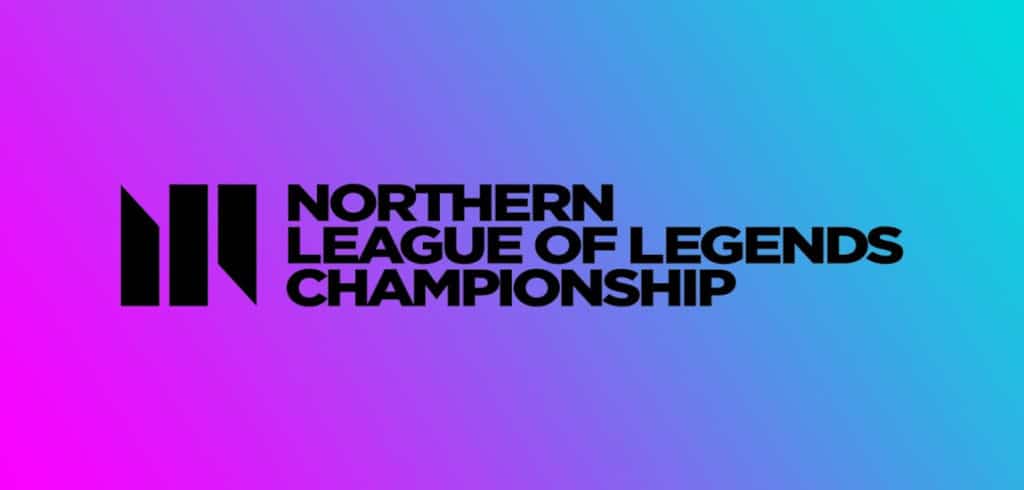UK League of Legends has gone through a huge period of change this year, with the UKLC scrapped and upper-tier NLC adopting a multi-division ecosystem like the DACH Prime League, as Riot standardised the European Regional Leagues and Freaks 4U replaced DreamHack as tournament organisers.
Esports News UK freelance senior writer Megalodontus and editor Dom Sacco break the 2022 ERL prizing and subsidy news, before exploring in detail how the UK/Ireland/Nordics LoL scene has reacted to the NLC changes.
NLC to feature €200,000 in prizing and subsidies – sources
The Northern League of Legends Championship (NLC), the European Regional League (ERL) for the UK, Ireland and Nordics, will have €200,000 available in financial support for teams in Division 1 next year.
Sources close to Esports News UK have confirmed €50,000 will be available in prizing – split between two seasons (spring and summer) and a pro-am tournament in the fourth quarter of 2022 – while €150,000 will be handed to the ten teams in stipends, or subsidies, equating to €15,000 per team.
Update (January 20th 2022): A Riot spokesperson has told Esports News UK it has set €50,000 minimum per year for any of its accredited ERLs.
When the NLC was first announced in April 2020, a minimum of 1 million SEK (€97,000 ) was up for grabs for teams and players per season, so the new amount is in line with that.
Two months ago, Riot Games announced major changes to ERLs to help “level up” the region and standardise its diverse ecosystem.
And back in July, Riot said it is “standardising the prize money for both the accredited and non-accredited leagues and are increasing team subsidies in all ERLs”.
One aspect that has not been public until now is the prize pool structure and spending in both types of ERLs.
If Riot’s announcement on standardisation follows through on all aspects, the other accredited ERLs such as the SuperLiga (Spain), LFL (France), Prime League (DACH) and Ultraliga (Poland and Baltics) could very well have the same prize pool amount as the NLC.
While no accredited ERL prize pool has been officially announced publicly, Freaks 4U Gaming also operates the DACH Prime League, so it may be that this tournament has a similar pool to the NLC, though that has not been confirmed.
Accredited ERLs are expected to host one offline event per year, with the participating players added to Riot’s Global Contract Database (GCD, which outlines the contract dates for all Riot-sanctioned leagues). Non-accredited ERLs are no longer being required to host offline events.
The NLC is not known to have other additional payouts such as revenue sharing or performance incentives at the time of this report.
Since the SuperLiga and the LFL have much larger audiences, it’s unknown if the two leagues have a more flexible or larger subsidy pool.
It’s also unclear how the prize pools will be distributed across spring and summer, since Riot also announced new pro-am tournaments which will be held around October or November in each ERL. A cut of the prize pools will be expected to be distributed there.
The NLC has ten teams in the Division 1 Spring 2022 NLC: Dusty, Singularity, Riddle, X7 Esports, Vanir, MNM Gaming, Nyyrikki, Bifrost, BT Excel and Astralis Talent (with the latter two being LEC academy teams).
What about the prizing and support for non-accredited ERLs?
It’s been reported publicly by an organiser that non-accredited ERLs will each have a standard prize pool of €28,000 per year.
These ERLs include the PG Nationals (Italy), EBL (Balkans), GLL (Greece/Cyprus), Elite Series (Benelux), LPLOL (Portugal) and the Hitpoint Masters (Czech Republic/Slovakia).
The Benelux Elite Series organised by Team Meta recently announced an overall €75,000 prize pool across four of its esports games. Of this, League of Legends has an aforementioned €28,000 prize pool, as well as €24,000 in stipends (or financial support) for the eight Benelux LoL teams. These stipends may differ per ERL.
Moritz van der Lugt, aka radicaL3i, esports project manager at Team Meta, mentioned this on Twitter:
Prize pools for ERLs are indeed standardized by Riot (all non-accredited ERLs have a fixed prize pool of €28k in 2022). In terms of cash payouts, LoL is actually going up (very slightly) from 50k to 52k if you include the 24k in direct financial support going to the orgs.
— radicaL3i (@radicaL3i) December 22, 2021
Esports News UK has learnt there is a minimum required prize pool and subsidy amount for all ERLs.
We understand the Italian PG Nationals has a similar structure, with €60,000 available in financial support per year overall (€28,000 as the prize pool, with a stipend closer to €32,000). The PG Nationals is also unique as it has a revenue share model with its partner teams based on sponsorship. This model is expected to continue in 2022, sources have said.
Despite the NLC committing the substantial amount of €200,000 in prizing and stipends in 2022, there has been some uncertainty in the UK/Ireland/Nordics LoL scene.
Some teams have chosen to withdraw from Division 2, citing a lack of financial support as well as changes to the promotion structure (see the feature below for greater detail on this).
Esports News UK reached out to Freaks 4U Gaming and Riot Games for comment earlier this week, but understands the teams we contacted may be away on leave until the New Year.
When did Freaks 4U get involved in the running of the NLC and what initial changes were announced?
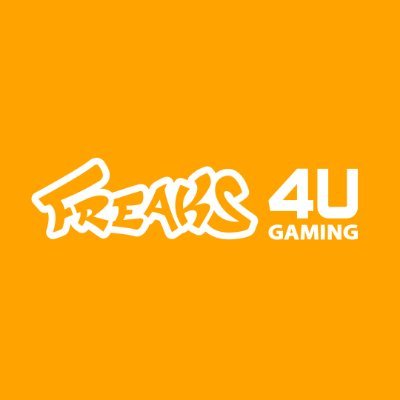
Back in August, Riot Games announced a restructuring of its European Regional Leagues (ERLs) in League of Legends.
Along with this, Freaks 4U Gaming took over as tournament organisers of the NLC for the UK, Ireland and Nordics, taking the reins from DreamHack. This Northern European region of course consists of the UK, Ireland, Sweden, Finland, Denmark, Norway and Iceland.
Effective January 1st 2022, Freaks 4U Gaming will assume the operator role of the Northern ERL from DreamHack and Telia, taking over both the top-tier as well as the path-to-pro ecosystem respectively.
As part of the changes to the ERLs, a new ‘multi-division league ecosystem’ was adopted, similar to the League of Legends Prime League in the DACH region, which was referenced in Freaks 4U’s initial announcement. As part of this, the existing mid-tier official UKLC, Telia Esports Series and Telia Masters were scrapped, with a division system replacing them. The lower-tier third party UKEL would also no longer feed into this new-look NLC.
This meant the NLC would consist of Division 1, Division 2, Division 3, and so on, going forward. What wasn’t fully clear in the initial announcement (at least to press) was a prize pool and other concrete details, like information on promotion tournaments.
In October 2021, Riot announced more changes to League of Legends European Regional Leagues. The idea is to standardise competition formats across the different ERLs, with two splits per year and also pro-am tournaments being added. Academy teams are also no longer allowed to operate in a competition that can qualify into a league where their first team is competing.
“We’re still in discussions with Riot as to how we can continue to participate in the UK scene, and we will update you all with more information once we have it. Whilst we won’t be continuing the league, we may run some tournaments in the off seasons.”
UKEL
As mentioned, the UKEL would no longer be operating in UK League or allowing teams to qualify for the NLC divisions.
“Unfortunately, we weren’t able to provide support to Freaks4U,” the UKEL said in an update confirming there would be no UKEL League of Legends tournament for 2022.
“Format changes have made it so our previous tournament structure is no longer tenable, and as such, in 2022 we will not be providing a broadcast League of Legends league,” the UKEL said.
“We’re still in discussions with Riot as to how we can continue to participate in the UK scene, and we will update you all with more information once we have it. Whilst we won’t be continuing the league, we may run some tournaments in the off seasons. We’re also looking to work with partner organisations to hopefully bring some open house tournaments to the UK.”
The NLC is an ‘Accredited ERL’, with a Division 1 league that features 10 teams, a double round robin best-of-one format and a six-team double elimination format in the playoffs stage.
Freaks 4U Gaming already has solid connections with Riot, having fostered the DACH LoL community since 2014 through its Summoner’s Inn and Prime League. So why has the change been a seemingly rough ride in UK LoL so far?
The NLC exodus: Why have several teams dropped out?
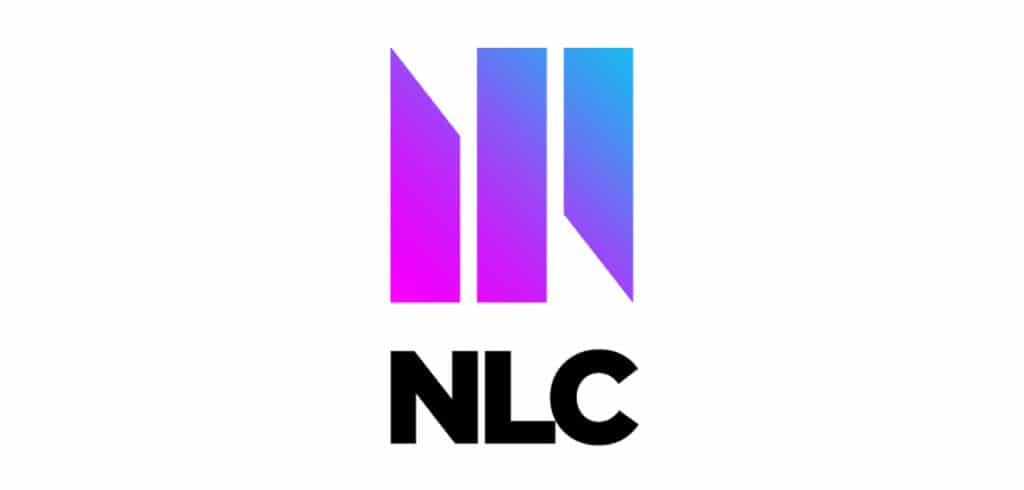
The UK and Nordics LoL scene looks very different now to what it did half a year ago.
One of the most noticeable differences is the number of teams that have dropped out of the NLC.
Fnatic Rising left for the Spanish Superliga (though this was rumoured for some time before the NLC announcement), Absolved left after X7 acquired their spot, Tricked departed once Astralis Talent took their slot, and 00Nation (formerly Nordavind) dropped out, with Dusty taking their spot. Enclave left the NLC ecosystem, as did Kova, Nvision, Godsent, Galaxy Racer and Granit Gaming.
Nox have also left, though Esports News UK understands this was more down to personal reasons and prioritising family over business, than anything to do with the NLC.
A number of Nordic teams from the now-scrapped Telia Series have also exited.
A few other UK organisations departed the revised NLC circuit, including London Esports and Resolve, who recently dropped out of NLC Division 2, and fellow UK org LDN UTD said last week that their future in the NLC was up in the air after their roster began looking for other teams to join.
So why is this happening?
Prizing
One of the most obvious reasons is the fact there is no prize pool in divisions 2 and below.
Even though this has been the case for the DACH region, which Freaks 4U is “aiming to replicate the success” of within the NLC, it seems some teams either didn’t get the memo, or after consideration, weren’t happy with the conditions or future opportunities – and ultimately decided there wasn’t a future for them with the NLC.
Others have said that DACH teams focus more on sponsorship and less on prize money, whereas in the UK it’s fair to say semi-pro or grassroots/amateur teams do face challenges in terms of getting sponsors on board, with many relying on prize pools to pay their players.
UK League of Legends veteran Reclamation said:
Resolve said of their departure from Division 2: “Whilst League of Legends has been the foundation on which we built our organisation, we feel now is the right time to take this step back to allow us to reassess and focus on other areas of the business.”
London Esports – who won the last ever UKLC (in Summer 2021) – said leaving the NLC Division 2 was a decision they “felt necessary to make”.
“We will be reassessing our options and hope that we will be able to re-enter into this brilliant esport down the line,” they added in a statement.
Promotions
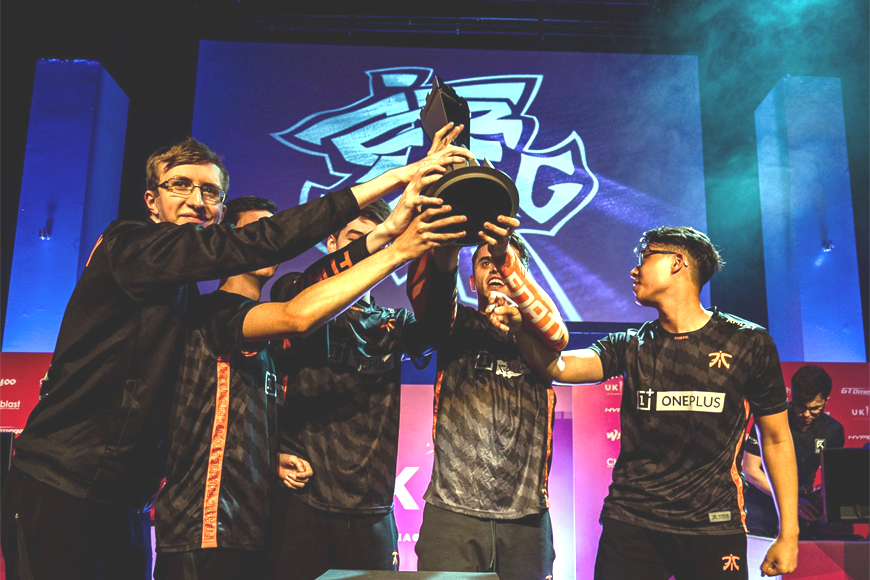
Another reason that may have irked some teams in the lower divisions is that the promotion tournament to Division 1 now takes place once per year, instead of twice per year as it had done previously.
LDN UTD CEO Oliver Weingarten said that due to the fact they could reach Division 1 in Spring 2023 at the earliest, LDN UTD was now assessing their strategy.
“We felt it’d be the best option to be honest with the players and give them a chance to see if there would be another option for them to play competitively this year,” he said. “We have to look at what makes sense for the business.”
One caster told Esports News UK: “If you’re not able to qualify [for Division 1] in spring, then what is the point? Players and orgs won’t be motivated. A lot of players will be like: ‘Let’s just play solo queue.’”
However, if NLC is adopting the DACH model then that means teams will accrue points throughout the spring and summer seasons, and the teams with the most points will then reach the promotions tournament.
“Whilst League of Legends has been the foundation on which we built our organisation, we feel now is the right time to take this step back to allow us to reassess and focus on other areas of the business.”
Resolve
One org owner told Esports News UK: “It was a good model for us before, but it is a waste of investment now, which is not monetizable. Look at how much X7 are spending.”
Another source said: “I believe that some of the NLC Div 2 teams feel they can’t get good enough players, which is BS, they simply don’t put in time to look for the hidden gems or are too incompetent to identify them, and by result can’t be promoted, so they jump ship.
“They were not in it for the long run and didn’t have a long term plan to grow or be relevant. Prize pool as a part of salary is worth little in my opinion. What if your team ends up at the bottom of the table? It’s a bad excuse to exit the league. It’s the org’s strategy that is at fault, then. If your funds are low, have a strategy that matches it.”
These points we’ve mentioned affect Division 2, but what of the Division 1 teams that have dropped out?
Viewership
For Fnatic Rising, moving from NLC to Superliga looks to be purely numbers-based. The Spanish Superliga is one of two most popular ERLs in terms of viewership, along with the French LFL.
One source said: “I think the NLC might struggle even more with the LFL now having an English language broadcast. There’s less reason to watch NLC than there was before.”
It’s true the NLC doesn’t have the numbers to match the LFL and Superliga, but it’s not right at the bottom either. You could argue it has potential:
Spain and France are on another level. LVP says that the Superliga brought the Summer 2021 season to a close with nearly 5m aggregate viewers and with its best ever viewing figures.
Viewers consumed over 2.6m hours viewing, a 39% increase on the previous year. In addition, the grand final fell just short of 300,000 unique viewers, set a new record of 73,596 simultaneous spectators and notched up an AMA (Average Minute Audience) of 43,191 viewers, a 165% jump on the 2020 summer final.
You can see more recent Superliga stats and LFL stats here, and for now the French league overall seems to be a way ahead. A recent showmatch between top LFL team Karmine Corp and new Spanish side Koi was a hit with fans.
Christopher Keeley, the CEO of Division 2 team Nox Esports, told Esports News UK: “No prize pool kills any incentive, plus with the lower viewership, it’s not attractive for sponsors.
“The ROI (return on investment) is just bad for orgs in Div 2 this year. Other titles are simply offering more and better. Why invest money into LoL when you can go and get 5x more profit or higher viewership for less elsewhere? Part of a successful business is about being smart with money, and NLC just doesn’t feel like a smart move.
“If viewership was somewhat higher it would really help, I do think Freaks 4U will get it right eventually and I have faith in them, but there are a lot of issues that need to be rectified. Hopefully there is a lot of feedback they can learn from and take into the New Year, see what needs improving and implement it.”
“If viewership was somewhat higher it would really help, I do think Freaks 4U will get it right eventually and I have faith in them, but there are a lot of issues that need to be rectified. Hopefully there is a lot of feedback they can learn from and take into the New Year, see what needs improving and implement it.”
Christopher Keeley, Nox Esports
UK scene player Egospeed, looked back to when the UKLC was launched.
“The UK scene saw one of its biggest growth opportunities back in 2019, thanks to investment from Riot/LVP towards the tournament and advertisement structure throughout the United Kingdom with the introduction of the UKLC,” he said.
“A new tower format was introduced which just didn’t sit right with some of the fans watching, as teams such as Diabolus and Fnatic took the lead in points and had weekly rematches, while other teams only played one game a week, boring limited fans with repetitive tournament outcomes.
“The idea of the league itself was great, but it was evident that advertising had failed – barely any effort of broadcasting the League to an outside audience was made and it largely considered those who played the game. The production was also questioned. Casters Aux and Hiprain arguably carried the whole show.
“Riot was right to invest in the esport scene in the UK, but was failed by those managing the UKLC. If Riot had invested into other tournaments such as the UKEL in Spring 2020, which saw incredible growth with a [small] production team and players, the League may have set off. But the damage had already been done the year before, as previous Twitch numbers were poor for an ERL.”
Selling spots
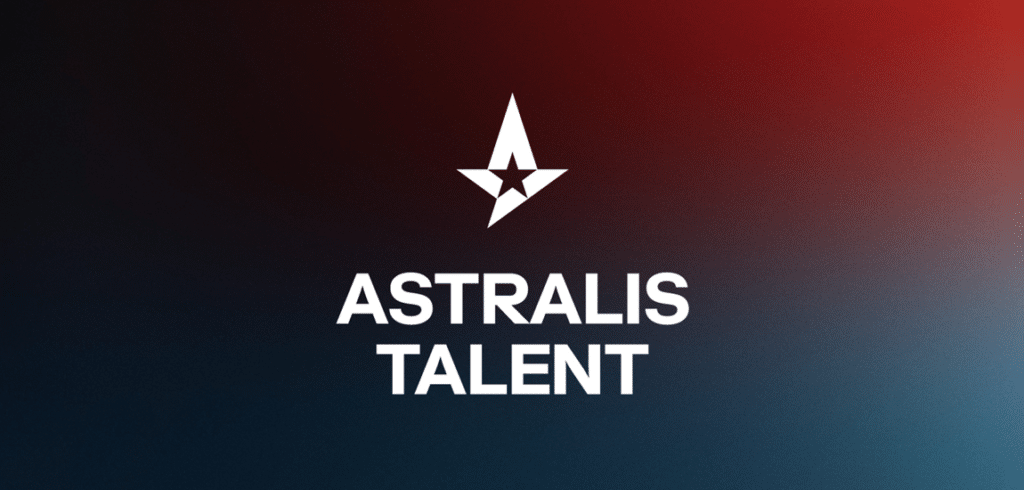
Some have been frustrated around the rules for selling slots in the NLC. For example, Astralis were allowed to sell their Superliga slot to Koi for €300,000, before buying Tricked’s NLC spot, but other teams in the NLC have not been able to.
Esports News UK understands that at least one Division 1 team had wanted to sell their slot and weren’t able to.
When Esports News UK asked NLC/Freaks 4U about this, they said in a statement: “Astralis sold the spot before we took over [as NLC organisers] and before the qualifiers took place. After the takeover, we decided for a performance-based system and especially in view of the short time window to no longer allow slot purchases.
“Instead, the teams that would have won the slot next according to their ranking – based on their performance – which is why X7 moved up first, followed by Dusty due to Absolved and Resolve withdrawing from the NLC respectively.”
NLC also posted this Twitter thread.
NLC 2022: Talent and teams
As it stands, the current teams for the NLC Division 1 and 2 are as follows:
There’s a nice mix of new and experienced names in there, and it should make for interesting matches, especially with X7 bringing on board some solid talent into the NLC. While the Isle of Man government provided a one-off financial commitment to aid X7’s UKEL costs in June, and there is no ongoing funding from the Isle of Man government, X7 does have other investors.
In terms of casters, Esports News UK had heard a little while ago some rumours that caster talent had been offered less pay than what they were receiving under DreamHack, and decided to look into this further to get the full picture.
Upon doing some digging into this, we understand that casters were offered in the mid-€20,000s range for a full-time position based out of Berlin, with Freaks 4U promising to consider offering more after bringing on board sponsors.
We understand casters were being offered around the €300-400 mark by DreamHack, at the upper end of a day-rate, with Freaks 4U initially offering €200, though some casters have negotiated this up somewhat.
And it’s worth remembering that ESL UK and LVP back in the day offered around £120 a day, so the pay has increased over time.
In terms of talent, there seems to be a nice mix of existing talent and also a few newcomers too. We’re not going to spoil this announcement in this article, so keep an eye on NLC channels and we’re sure there will be an announcement in the New Year.
Salaries and expectations – are some teams ‘burning money for the sake of burning money’?

One of the major changes to UK and Nordics League of Legends over the years has been increased player wages and stipends (or additional payments outside of the prize pool) for participating teams.
We have to go back a few years to see how players’ salary expectations rose.
In 2018, when ESL UK was running the official League of Legends ESL Premiership for the UK and Ireland, the prize pool for those tournaments stood at around £10,500.
However, in summer 2018, Riot announced it would be stepping away from ESL UK to partner with LVP – organisers of the popular Spanish Superliga – which had announced a new Forge of Champions League of Legends tournament for the UK, complete with a £50,000 prize pool and two spots at the EU Masters – a substantial rise in player and team incentives. This Forge of Champions initiative was a significant, multi-million-pound, multi-year investment.
At the same time, teams with funding like Excel, Diabolus and Misfits – all participating teams in the Forge of Champions – were able to invest more in player talent. Then Fnatic joined the UK LoL scene, only adding to the fanfare.
Suddenly, the UK League scene had more money and influence being pumped into it. This raised players’ salary expectations, with the top talent being able to ask for more.
An experienced League of Legends personality told Esports News UK: “Back in 2018, some teams like Diabolus came in with more money than anyone else and went wild with money. They initially failed (5th in 2018 Spring while having players like Larssen and Caedrel).
“The other teams around responded with what I would consider panic, and started coughing up money they didn’t have to compete. Over time, this became the norm, and players expect it at this point. Industry standards moved as orgs decided to join in on the arms race instead of finding alternative ways to attract players to their teams.
“Also, the growth of other regions like France and Spain has come after many years of stable support from big companies like Vodafone and Movistar, and big-name personalities like Ibai and teams like Kcorp.
“The UK and Nordics haven’t had all this – and are simply behind. UK/Nordic players compare themselves to players in Spain and France and feel it’s unfair. However, UK/Ireland/Nordics players need to accept that LFL and SL are like the Premier League. Some have to play a division lower than what they expected and grind their way up again – or sit out.
“The general player/coach will blindly look at the top numbers and expect at least to get some more money in their offers than they did last year. They will expect this, even when they talk to a Div 2 team and they themselves played in Div 1 last split or last year. To be honest, there are way too many players that are paid more than pocket money for no reason these days.
“At the same time, I believe too many orgs aim for instant promotion and disregard their situation. In football, not every Championship team aims for promotion, some aim to stay in the league, be middle table. That is healthy and shows a level of maturity we don’t have in the League scene yet. Not everyone can be Man U, Arsenal, Chelsea or Liverpool.”
“NLC players compare themselves to players in Spain and France and feel it’s unfair. However, these players need to accept that the LFL and Superliga are like the Premier League. Some have to play a division lower than what they expected and grind their way up again – or sit out.”
Anonymous
One org owner said the rise of player agents has made things more difficult for them to offer competitive salaries to their players.
Another, Christopher Keeley, the CEO of Division 2 team Nox Esports, added: “Salary inflation is real. I feel players shouldn’t be blinded so much by the money but to let their passions fuel them. I get they want to make it full-time and it requires a lot of hours, so it’s a very hard situation on either side.
“The lack of big brand players in the UK is also an issue, it’s something next year I want to focus on at Nox – personal development and the personal brand aspect.”
UK LoL caster Aux – who was previously a player at Excel – told Esports News UK: “I was paid £100 a month back then at Excel, now some players are paid ridiculous amounts (potentially thousands of pounds a month). The general pay level has risen so much, and while it has become more expensive to compete with other ERLs, it has allowed the UK to compete a bit better [with other regions], and we’ve been closer to winning the EU Masters than ever before. And I do think LEC academy teams benefit from stronger competition.
“With the investment teams like X7 are putting in, I can only imagine what their salaries are. I’m not sure it’s sustainable.”
Kalvin Chung, co-owner at MNM Gaming, said: “People need to be accountable for themselves and others. Money doesn’t always fix things – MNM has had the least money in many titles and we’re still champions [in some of them – like Trackmania and Rainbow Six].
“So people shouldn’t use money as an excuse to mask their shortcomings. I think that’s the problem with UK League of Legends. People think a chunk of money is going to fix everything, but they don’t talk about quality.
“As we’re building our business and interviewing people and growing from the UK, I think it’s very clear there’s a lack of quality in esports. There’s a huge amount of quality at the top, but it’s hard to find hardworking, trustworthy people – we go through hundreds of CVs.
“Until people start taking themselves accountable, I think we’re going to be in a perpetual state of always knowing we can be more but not getting there.”
“The general pay level has risen so much, and while it has become more expensive to compete with other ERLs, it has allowed the UK to compete a bit better – we’ve been closer to winning the EU Masters than ever before. And I do think LEC academy teams benefit from stronger competition.”
Aux
One person told us anonymously: “From my perspective, over the last couple years, the ERL salary levels have increased quite a lot. It’s reaching a point where some ERL teams can almost match LEC salary, and it’s honestly just burning money for the sake of burning money.
“But overall, I don’t think [the wider problem] it’s the fault of orgs that come in with money – or players asking for more. I think the fault lies with the orgs that promise something they can’t keep (i.e. inflating their own numbers and end up failing to pay), and the orgs that choose to let player demands run their business, instead of being realistic with what they have and not looking for alternatives.
“Also, many teams act as full-time projects, but don’t provide full-time salary. Many players want full-time work, but don’t have the level for it. Simply put, there are cases where both sides lack realism.”
One source told Esports News UK some teams wanted to sell up because they’re unsure what they’re getting out of being in the league, and that it’s hard to compete with academy sides like BT Excel and Astralis Talent. Trying to find a USP for the NLC is a struggle.”
They also said the “general vibe from Freaks 4U is to help make UK/Nordics LoL as financially viable as possible”.
“The NLC has been disastrous financially,” they added. “LVP made a huge financial loss, DreamHack felt the same way and Freaks 4U don’t want to make the same mistakes – they want to be more sustainable.”
Communication criticisms
While it’s fair for Riot and F4U wanted to bring stability, and the prize pool and stipends for Division 1 sound impressive, there has been some criticism of Freaks 4U’s communication.
“Communication has been horrible the whole way through,” said Dan Holt, coach of Division 2 team Verdant. “Support tickets are private, you’re not allowed to share them, there’s no clear information on the NLC website, streams haven’t been announced – there were none for the calibration tournament – and we’re a few weeks out from the competition, and so as an org, I worry. I don’t trust Freaks 4U.”
Others criticised the scheduling around the calibration phase, where teams qualified for the different leagues. Some teams had applied for the Division 1 NLC qualifiers, some got in and others didn’t. Some teams were informed of scheduling info, others weren’t.
One source said: “There were lots of problems with the calibration tournament. I couldn’t work out how teams were dropping down, it seemed random, it didn’t seem to make any sense where teams were going. They changed how you logged in without telling anyone, and got the game times wrong when the clocks went back. They changed all the game times that day with three hours’ notice.
“There was one guy running it, with 144 teams in an open bracket. It’s no wonder orgs were getting out and running to the hills. And it was disappointing there was no official stream for the calibration tournament. The whole thing doesn’t fill me with confidence.”
However, one org gave Esports News UK a counter point, saying that other teams could have done more to improve communication with the organisers.
They said: “I think a lot of the arguments around poor communication with Freaks 4U is more the org owners at fault for not reaching out to Freaks 4U.
“People just seemed to assume F4U would reach out despite them having this all dumped on them by Riot at the last minute, but never bothered to reach out themselves. This could be seen in LDN UTD’s video announcement where what they said [about last minute changes] was just straight up not true.
“I think a lot of the arguments around poor communication with Freaks 4U is more the org owners at fault for not reaching out to Freaks 4U.“
Anonymous
Anyone who spent any amount of time looking at Prime or speaking with Lukas [Bekermann, Freaks 4U tournament specialist] or Christoph [Lankers, Freaks 4U tournament manager] would have known there would be no prize money or stipends coming [for division 2 and below] and that the promotion format was once a year.”
Leaving on an optimistic note, one source told Esports News UK: “For Division 2 teams, NLC promotion happens sometime next fall and there is plenty of time to develop a great project without throwing massive money at it. It will require time and effort, but it’s for sure possible.
“I and others care a lot about the UK/Nordics and hopefully the scene will get better with time.”
We have some great League of Legends teams and talent in in Northern Europe – here’s to the future of this scene and we look forward to seeing the competition play out next year. In the meantime, Esports News UK wants to wish every one of you a Merry Christmas and a Happy New Year.
Explore Our Trusted Gaming Resources
Discover essential guides to UK casino sites, betting platforms, and crypto casinos — updated for this year.
- Best Online Casinos UK
- Best Crypto Casino Sites
- UK Sports Betting Sites
- No Verification Casino Sites in the UK
- Non Gamstop Casinos UK

Dom is an award-winning writer and finalist of the Esports Journalist of the Year 2023 award. He has almost two decades of experience in journalism, and left Esports News UK in June 2025.
As a long-time gamer having first picked up the NES controller in the late ’80s, he has written for a range of publications including GamesTM, Nintendo Official Magazine, industry publication MCV and others. He also previously worked as head of content for the British Esports Federation.

